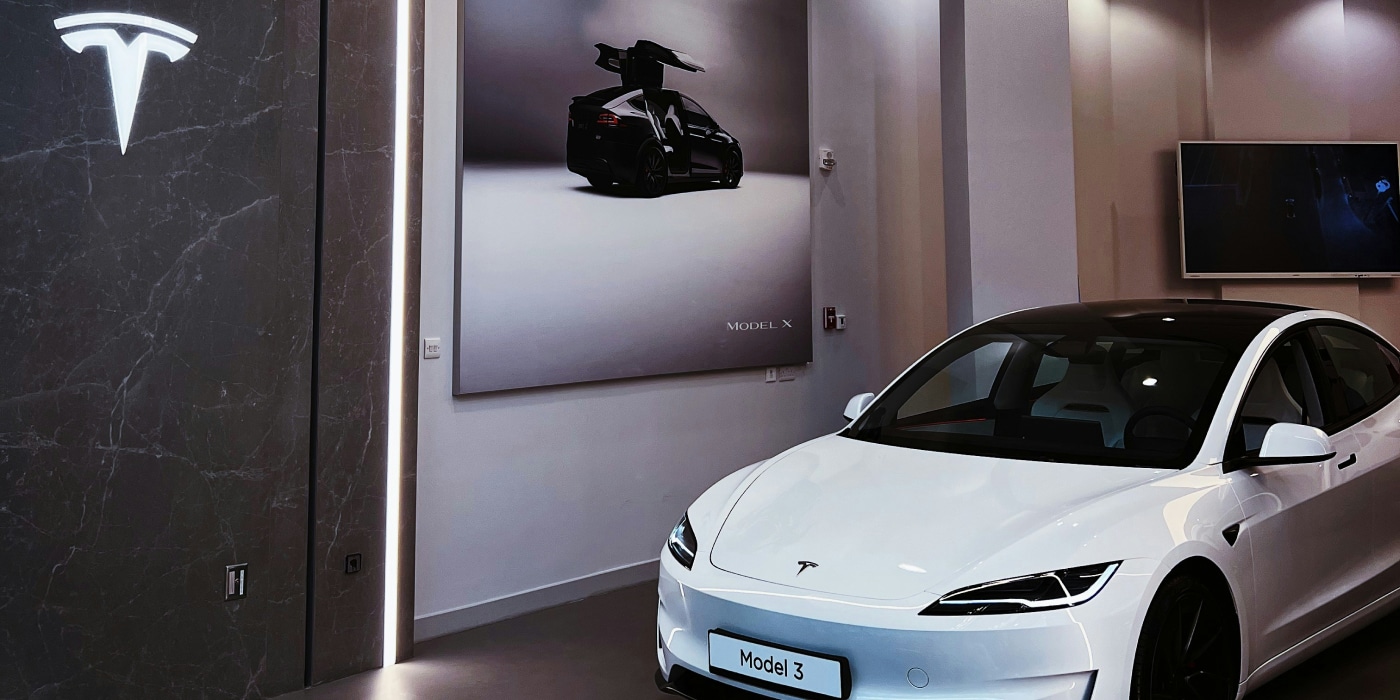How Electric Vehicle Adoption Is Reshaping the Automotive Market
Once seen as a niche product for early adopters and environmentalists, electric vehicles (EVs) have entered the mainstream, fueled by advances in technology, changing consumer expectations, and global policies targeting carbon emissions. From established automakers to startups, companies are building electric vehicles as they adapt to increasing customer demand. Sales of EVs topped 1.3 million units in the U.S. in 2024, a 7.3% year-over-year increase, according to Kelley Blue Book.
With improving charging infrastructure and additional EV models entering the market, sales growth is expected to continue in 2025 with electric vehicles projected to represent nearly 10% of all U.S. vehicle sales this year, according to Cox Automotive. The year has gotten off to a good start with sales of all-electric vehicles in the United States rising 11% during the first quarter to about 300,000 cars and light trucks, much faster than the overall auto market.
Here’s a look at how the rise of electric vehicles is transforming the automotive market.
Automakers Are Going All-In on EVs
Major automakers have committed billions of dollars to electrification. Companies are working to shift their gasoline-powered lineups to electric power eventually, as they face pressure to cut vehicle emissions and offer environmentally-conscious customers greener transportation solutions. Tesla, long the frontrunner in the EV race, is now joined by a growing list of serious competitors.
Price remains the single biggest barrier for would-be EV buyers, however, with lower-priced models on the horizon, such as potential updates to the Chevrolet Bolt and new entries like the Kia EV3, manufacturers are working to broaden consumer choice at more affordable price points. The arrival of these options may help sustain the upward sales momentum. With purchase incentives subject to a variety of eligibility rules, many consumers have gravitated toward EV leases. In recent months, leasing rates have surged as automakers and dealers encourage consumers to take advantage of lower monthly payments.

EV Infrastructure Is Expanding
One of the key challenges to widespread EV adoption has been charging infrastructure. Governments and private automotive companies are building networks of fast-charging stations, making it easier for drivers to charge their electric vehicles. Ionna is committed to deploying 30,000 electric vehicle charging bays around the U.S. by 2030. With EV adoption gaining momentum, the joint venture founded by many leading automakers is on track to bring over 1,000 additional charging bays online this year.
Volvo Trucks North America is integrating with Greenlane’s charging services in North America to expand drivers and fleet managers’ access to charging locations. Through Volvo Open Charge, a service that provides access to a network of public charging sites for electric trucks, drivers will now have access to Greenlane charging sites. Greenlane opened a flagship site in Colton, California, last month that features 40 publicly accessible chargers for heavy, medium, and light-duty zero-emissions vehicles.
Growing Electric Vehicle Supply Chains
To minimize tariff costs and logistical complexities, many automakers are regionalizing their electric vehicle supply chains, building vehicle assembly plants in the U.S. Rivian is investing nearly $120 million to construct a 1.2 million square-foot supplier park in Normal, Illinois. The development will pave the way for EV suppliers to locate in the park, bolstering the supply chain and manufacturing ecosystem in Illinois. Rivian announced plans last year to shift production of its new R2 SUV from its planned electric vehicle factory in Georgia to Normal, Illinois to get the vehicle to market faster. The first models are expected to be released in the first half of 2026.
Lucid is pushing forward with increased U.S.-based production of battery-electric vehicles, as it seeks to weather tariff uncertainty and increasing consumer demand. Lucid reported deliveries of 3,109 vehicles for Q1 2025, a 58% increase from Q1 2024 and the company’s fifth straight quarterly delivery record. Lucid is localizing the supply of key components, transitioning to Panasonic’s Kansas battery facility and sourcing domestic graphite through partnerships. The automaker has also held discussions with several automotive manufacturers seeking to leverage Lucid’s Arizona manufacturing footprint for U.S.-based production.
Increasing electric vehicle adoption is redefining business models across the automotive industry, forcing traditional automakers to rethink how they operate. A greater variety of EV models are being developed across different price points, making them more accessible to consumers. Expanding manufacturing ecosystems and charging infrastructures are paving the way for a greener and more sustainable future.
For more information about how our delivery management solution can help you manage your deliveries more efficiently, please contact info@www.bringoz.com.
